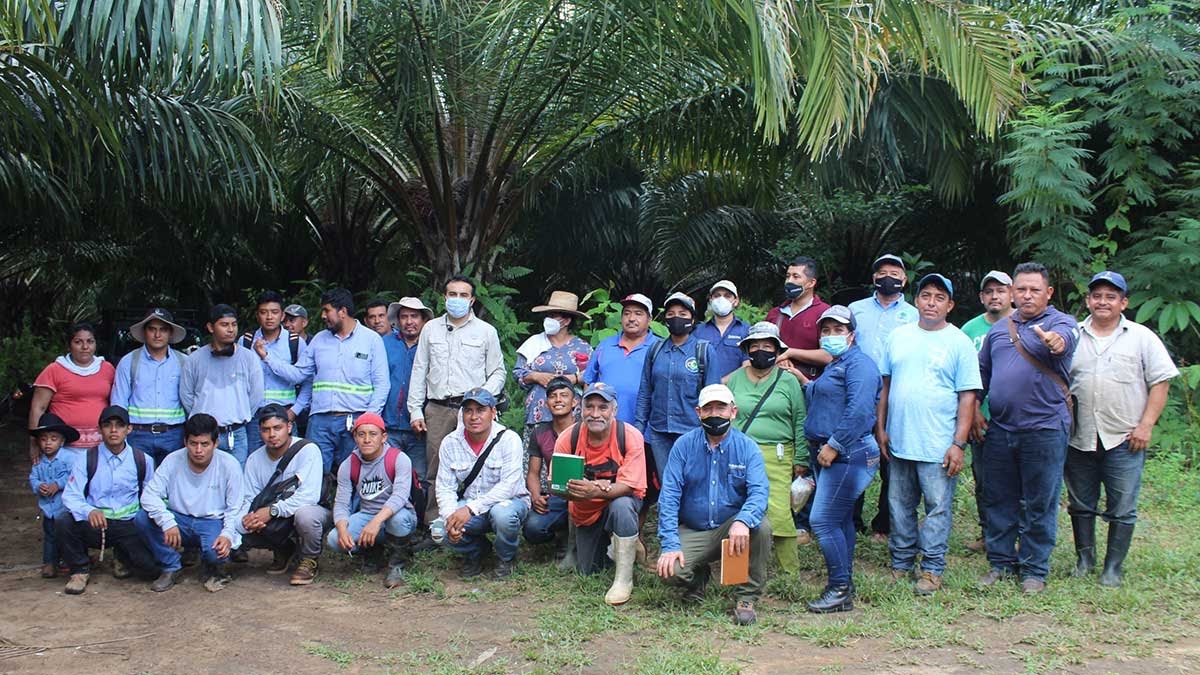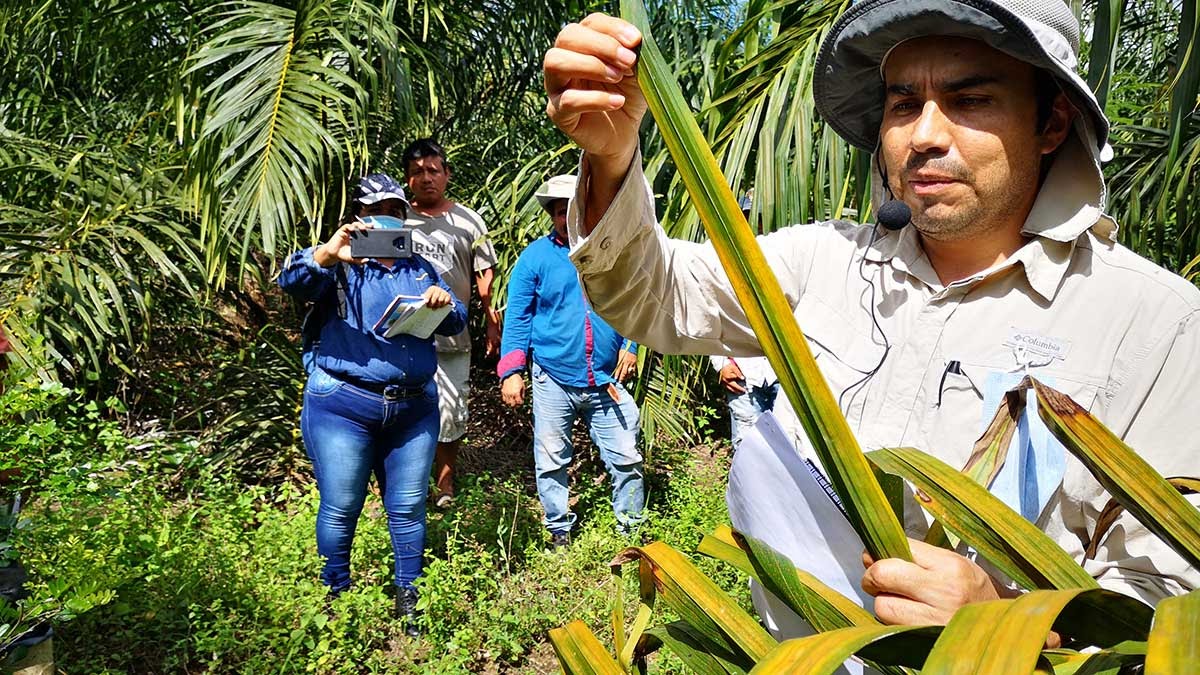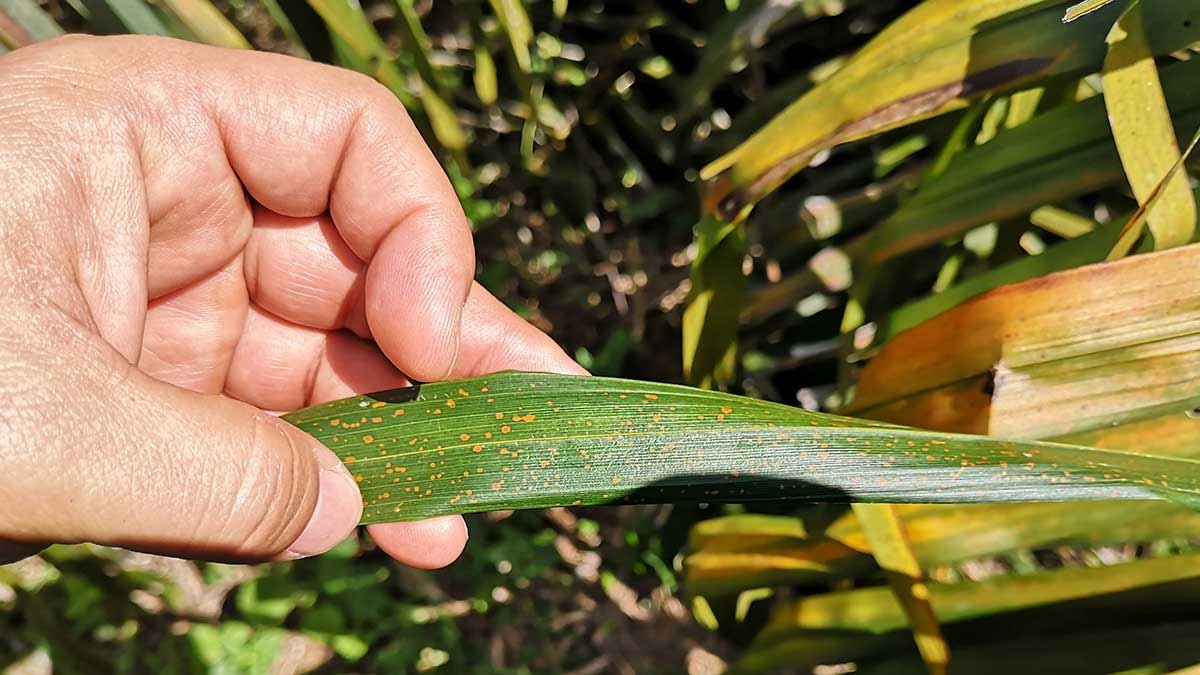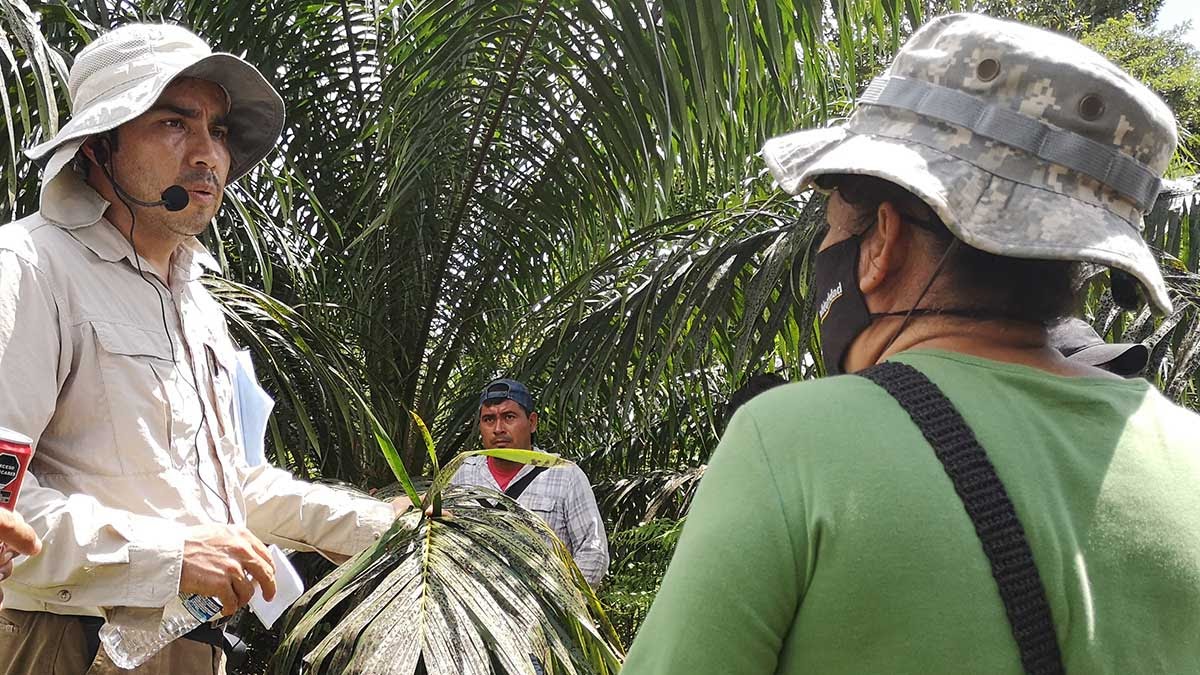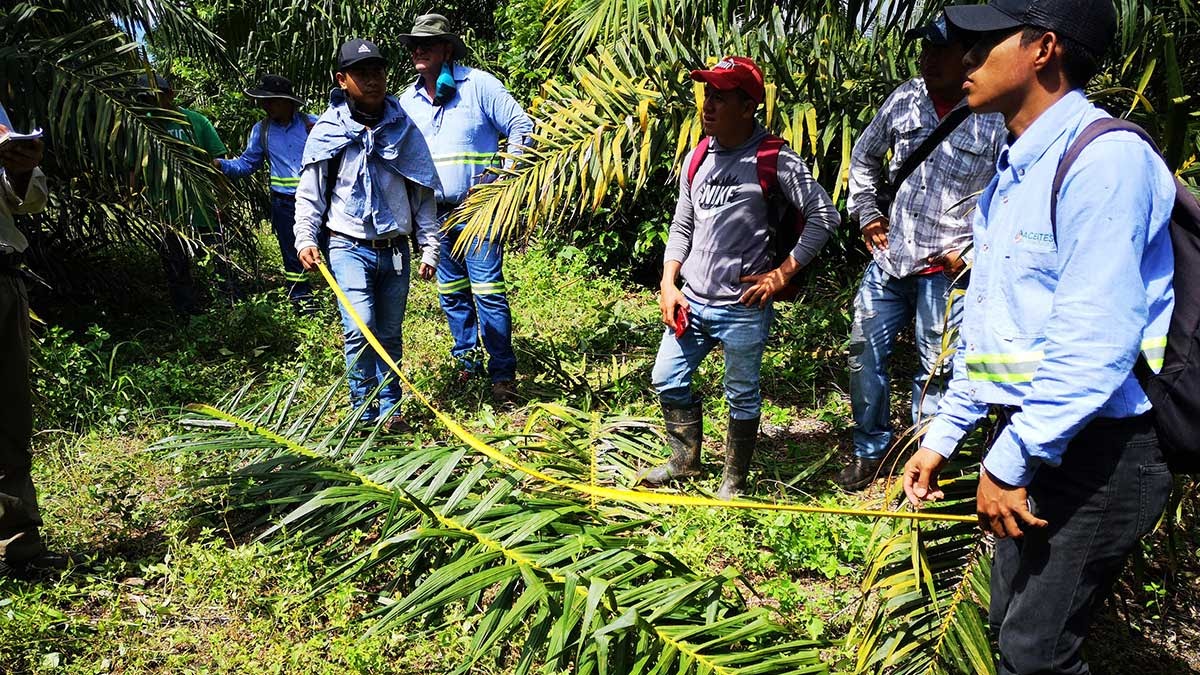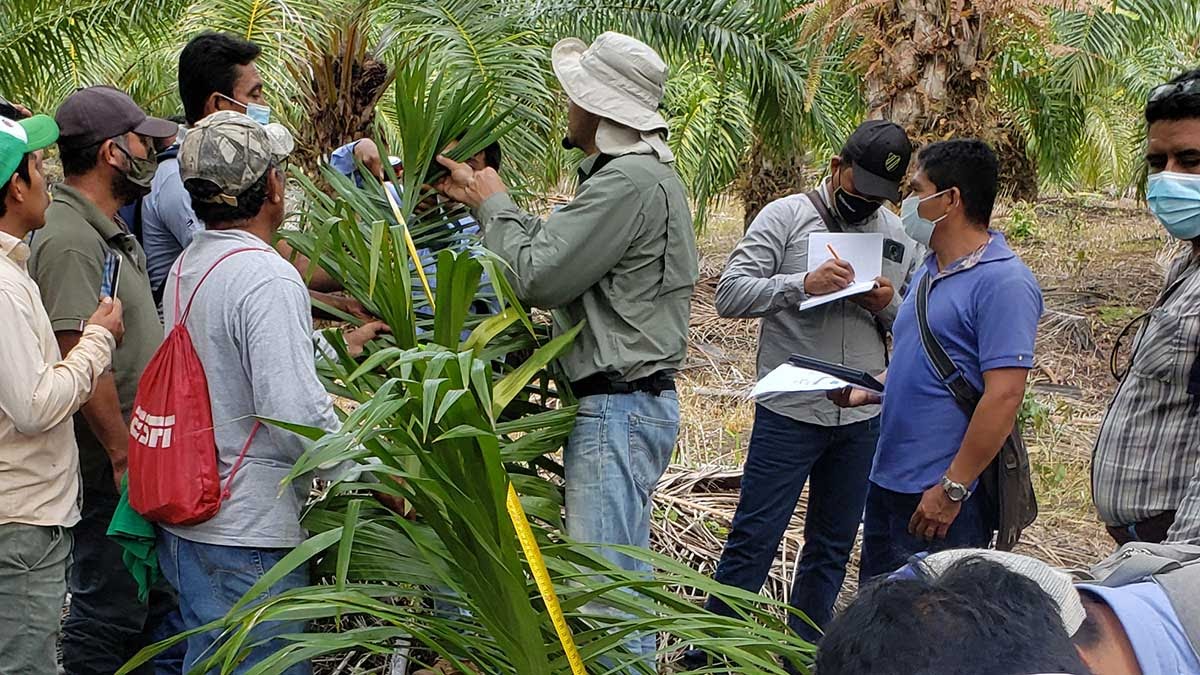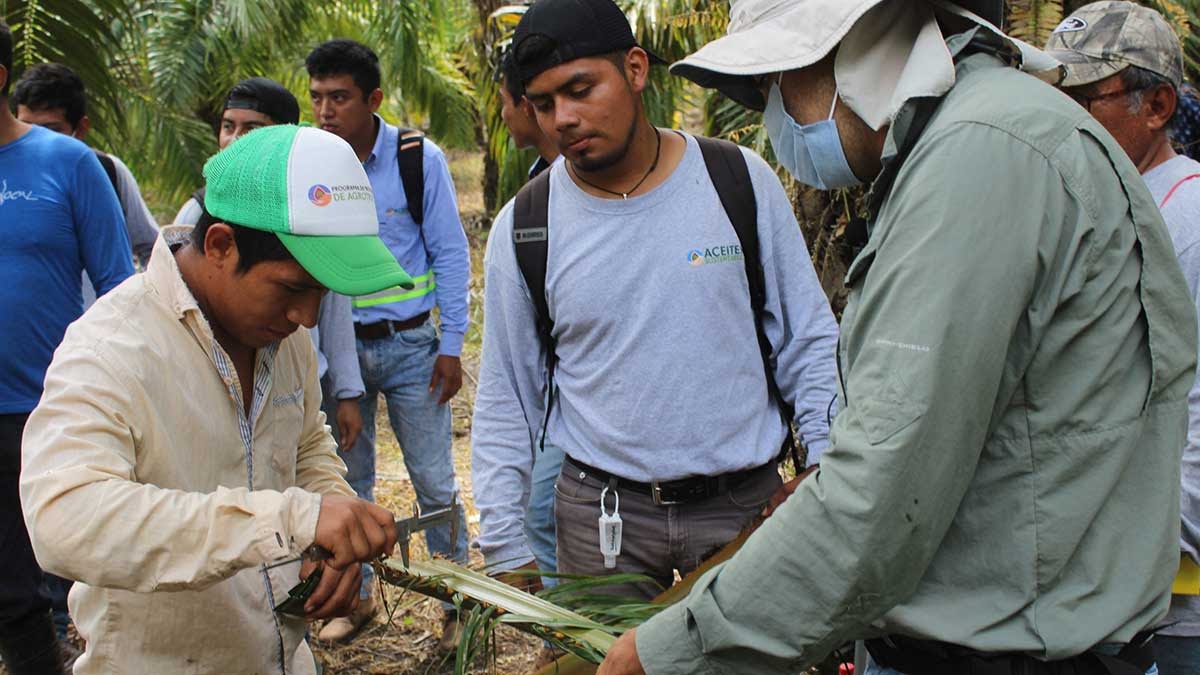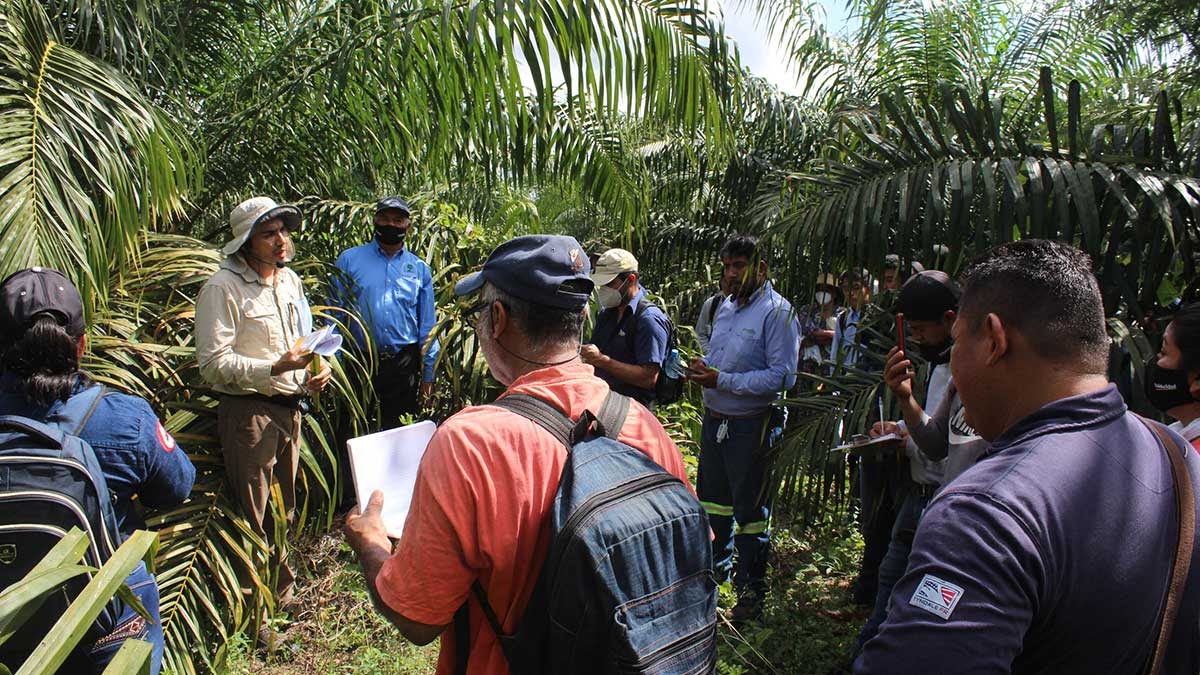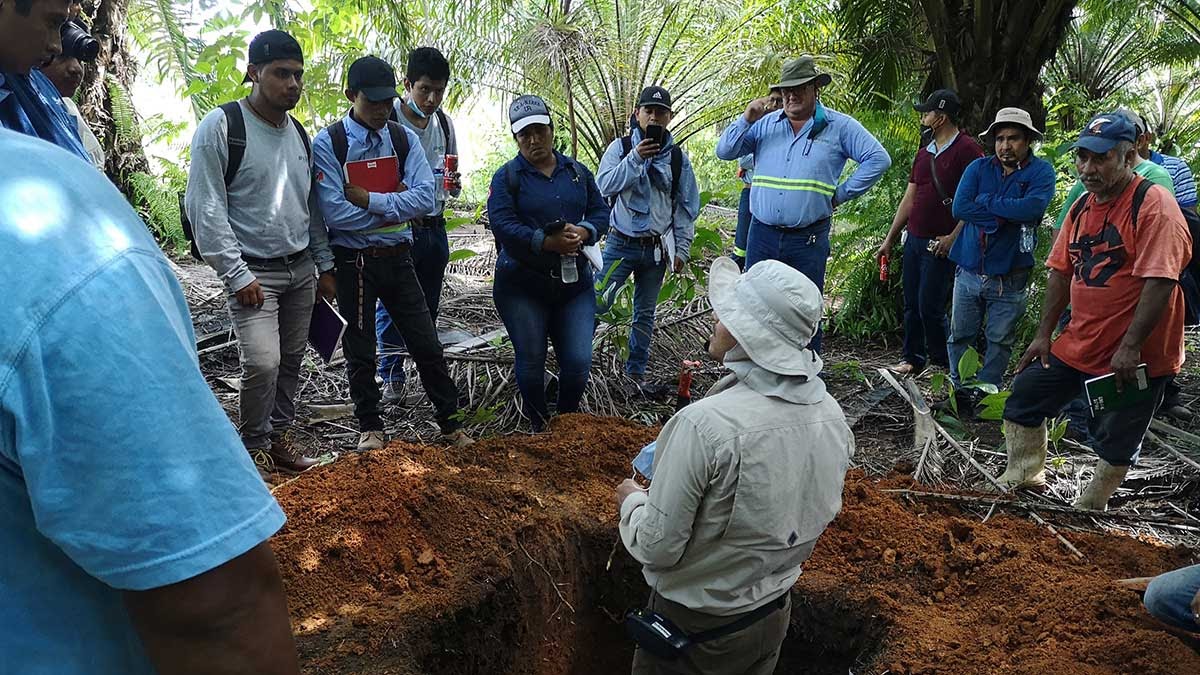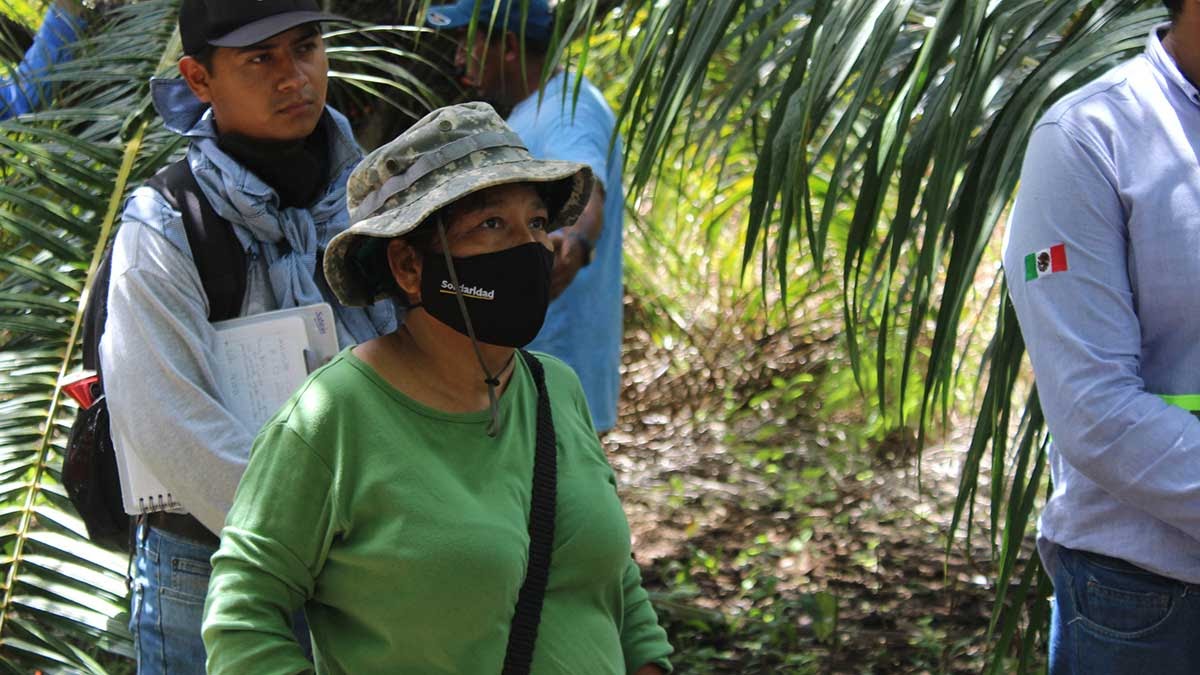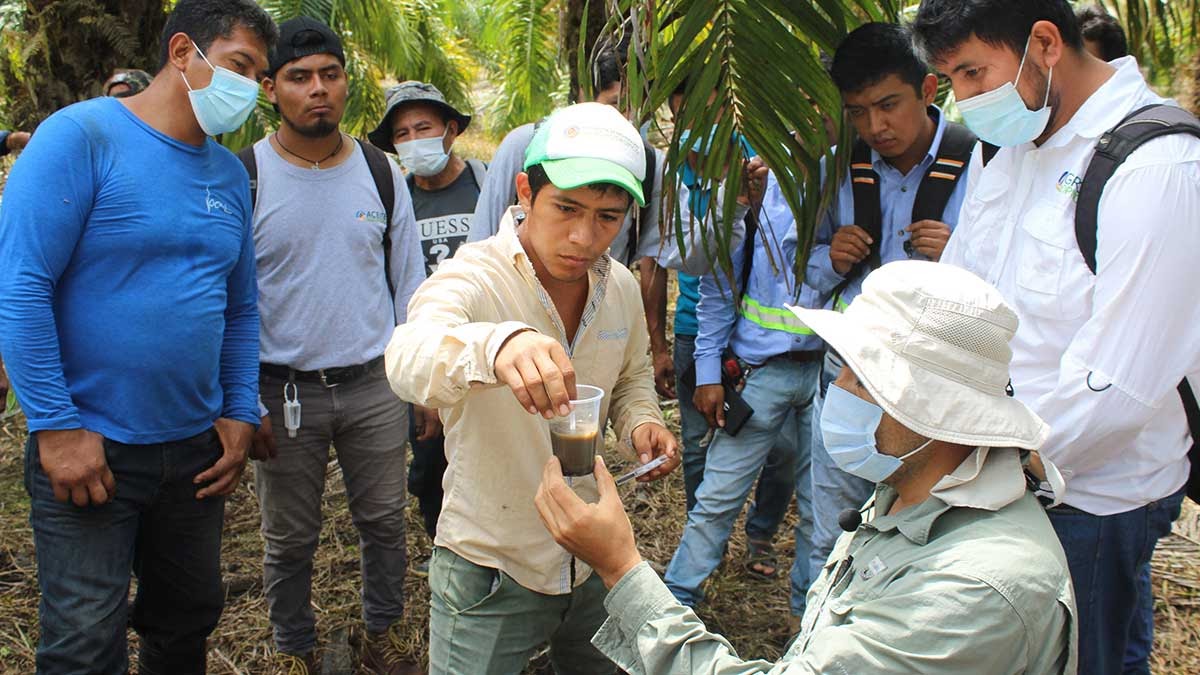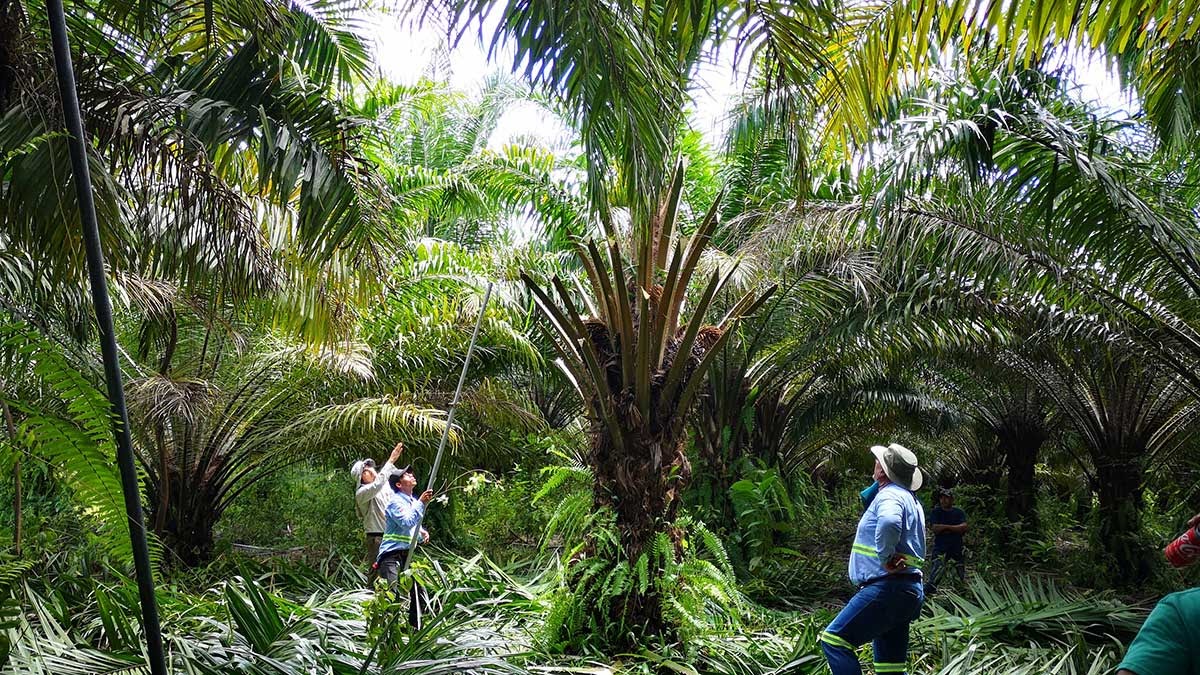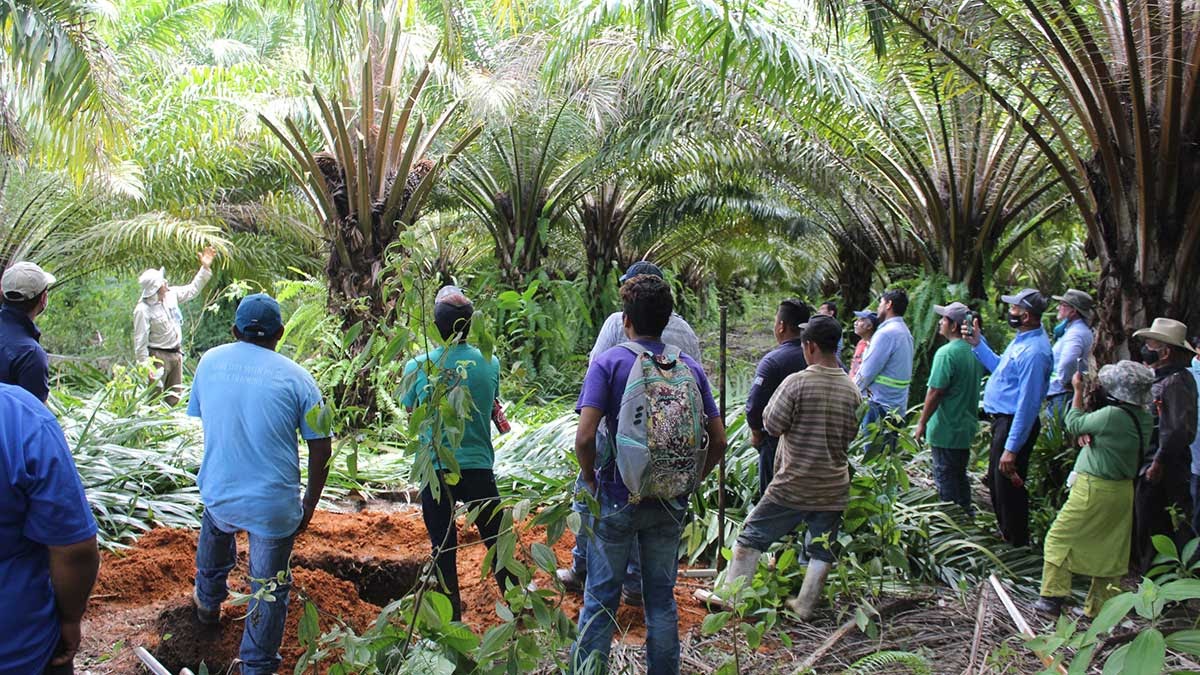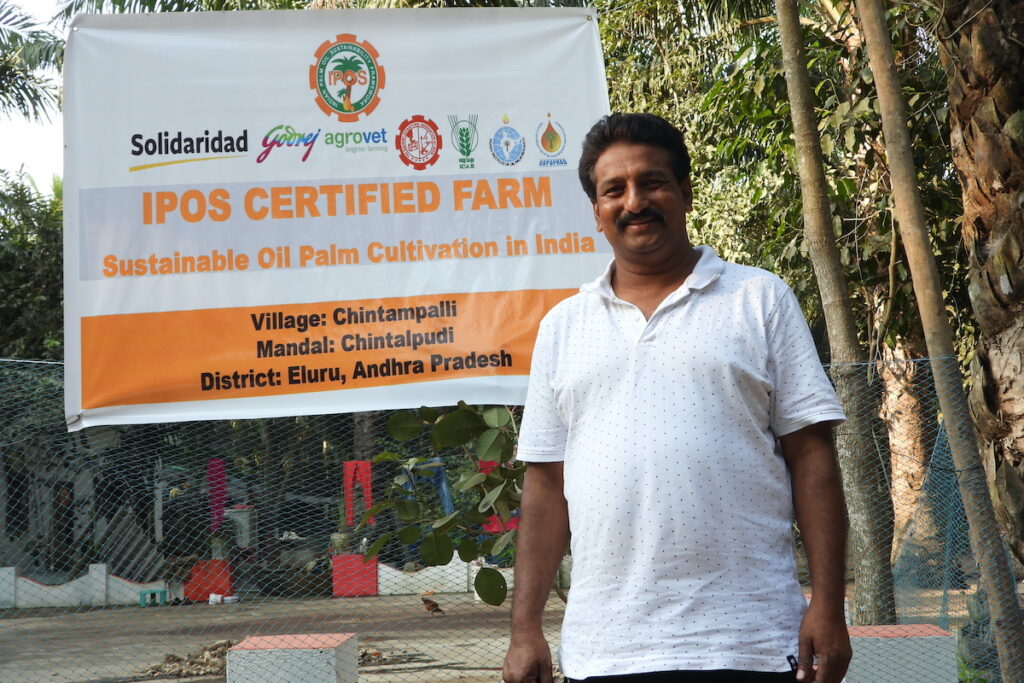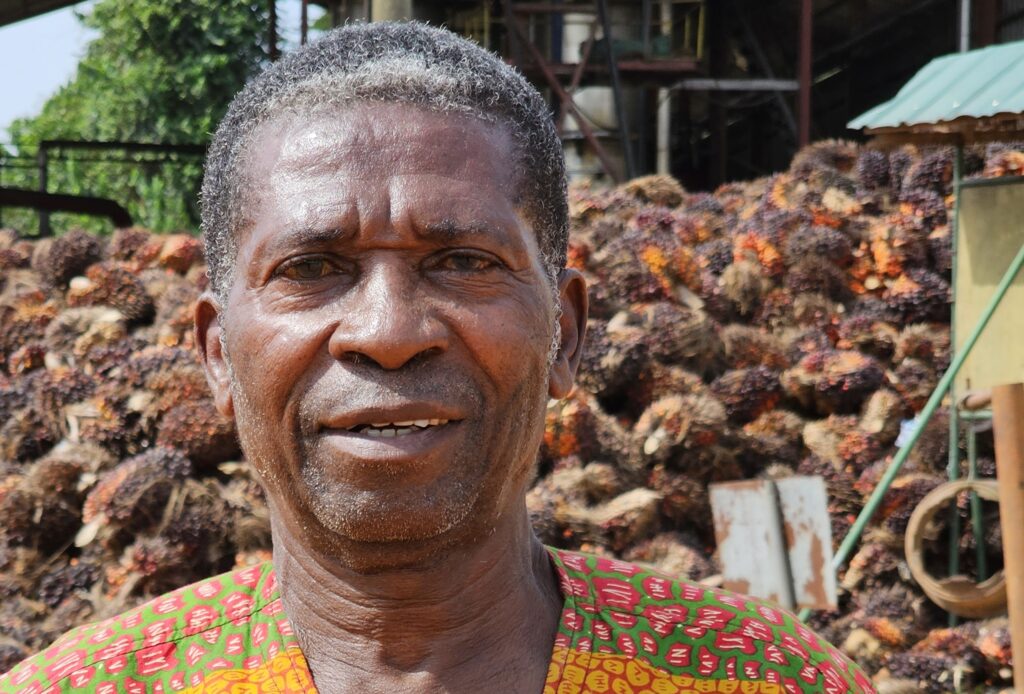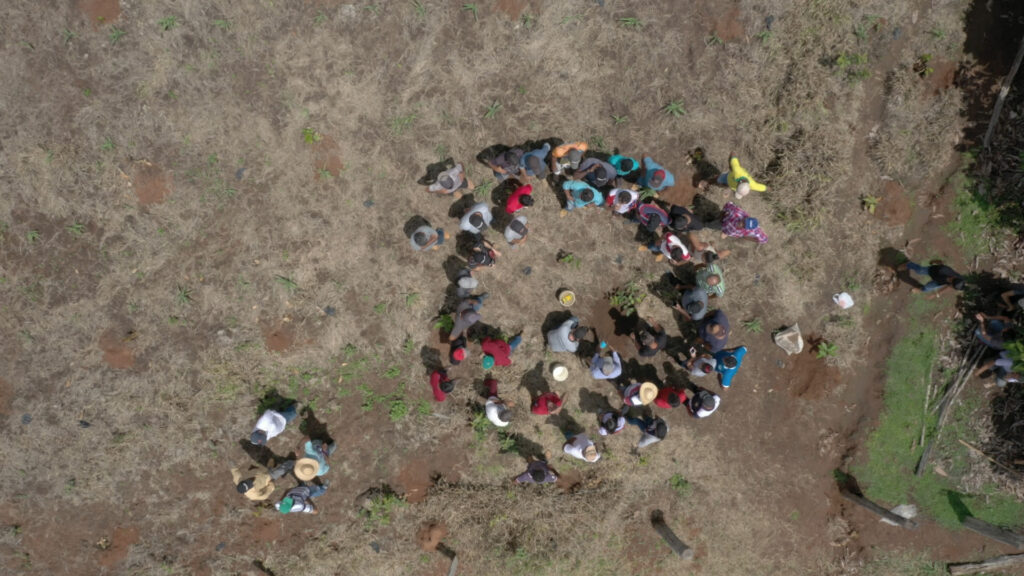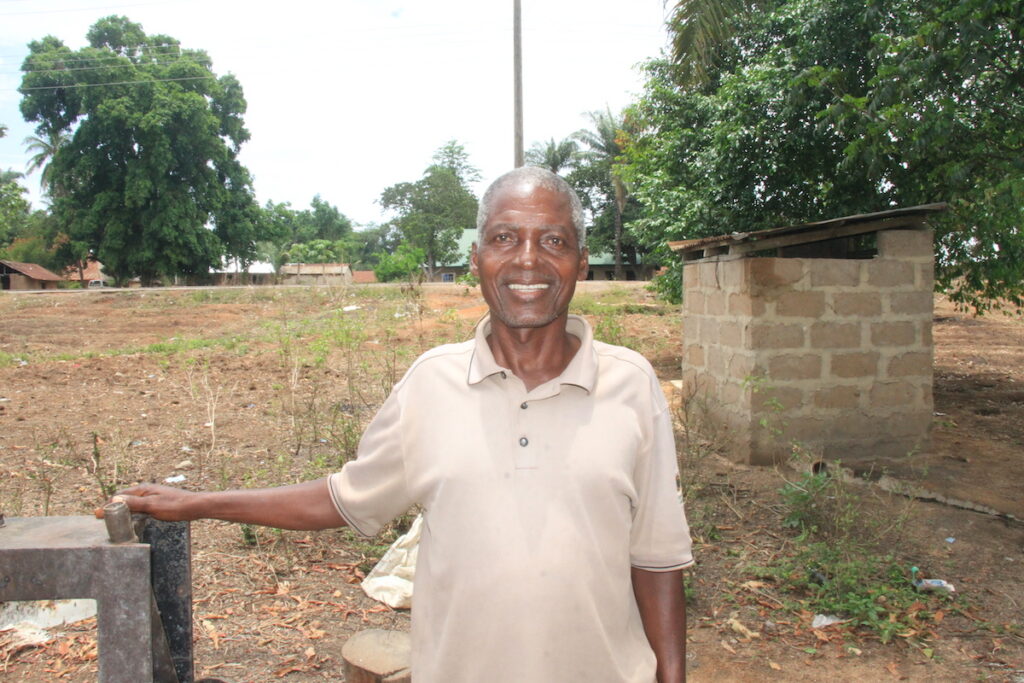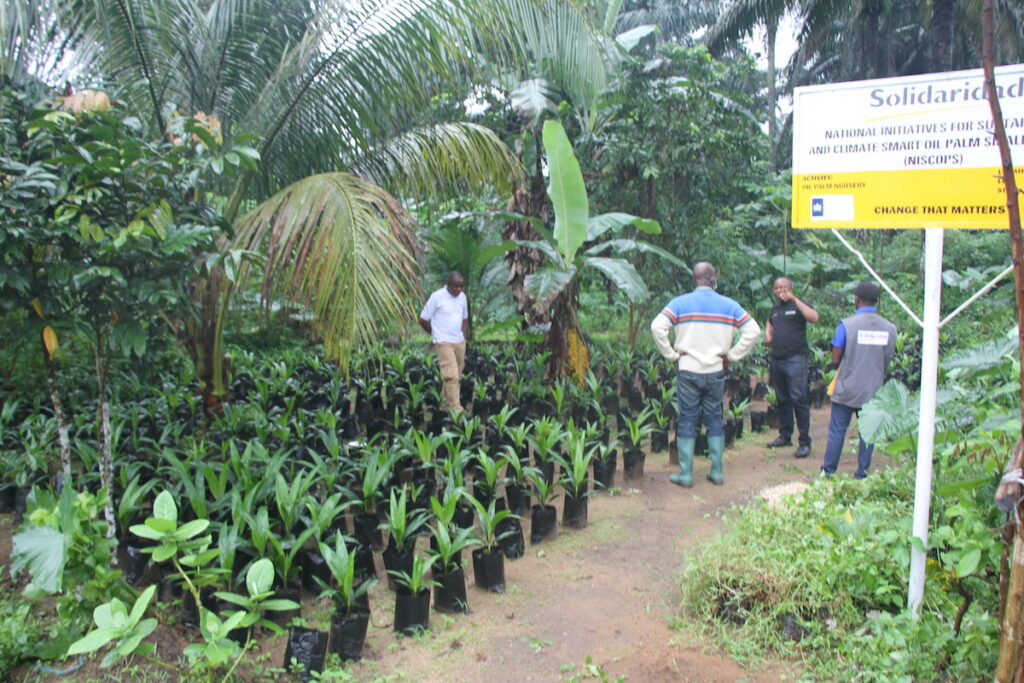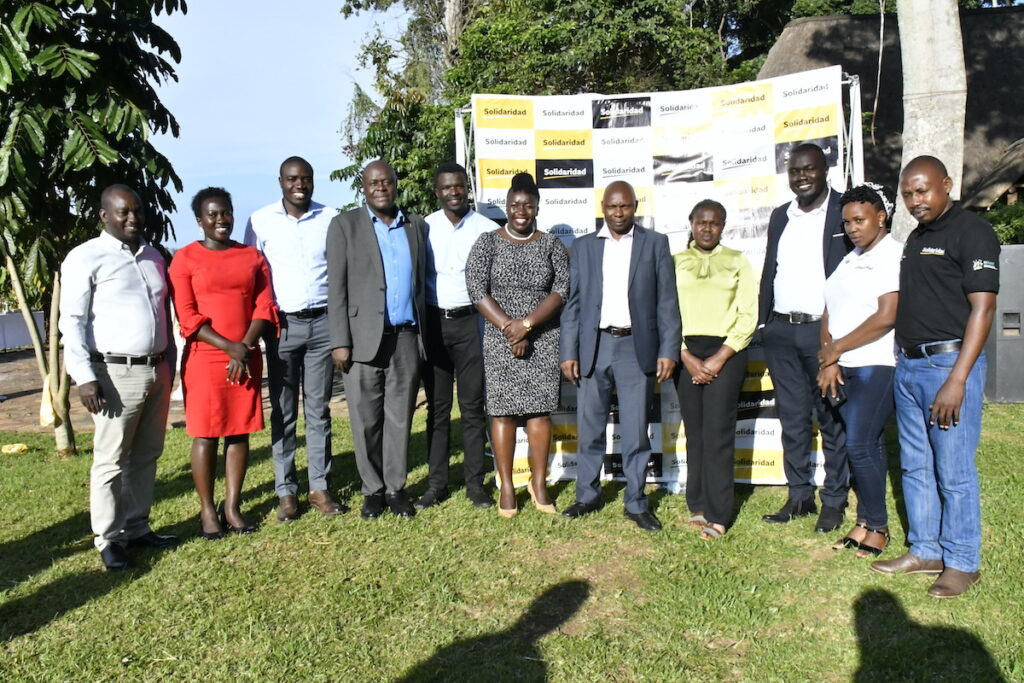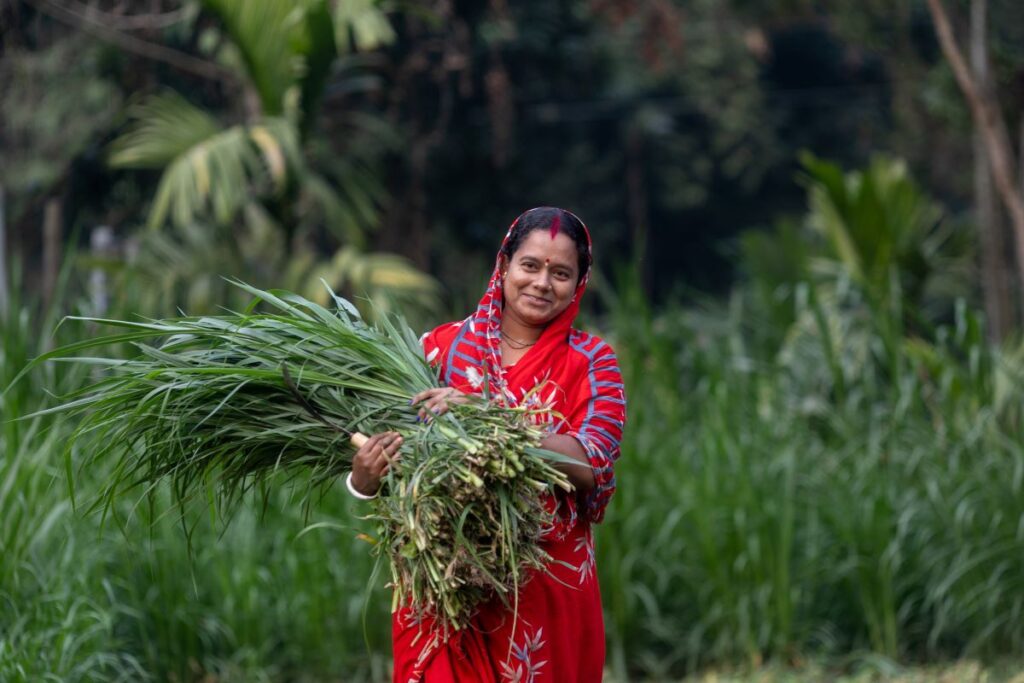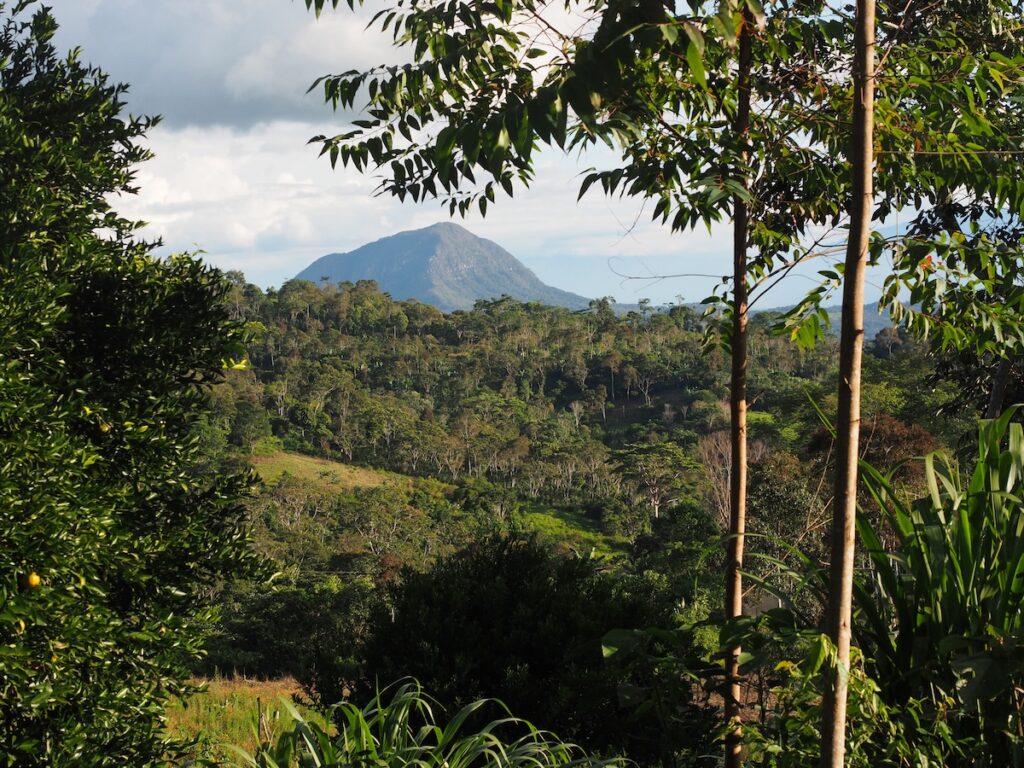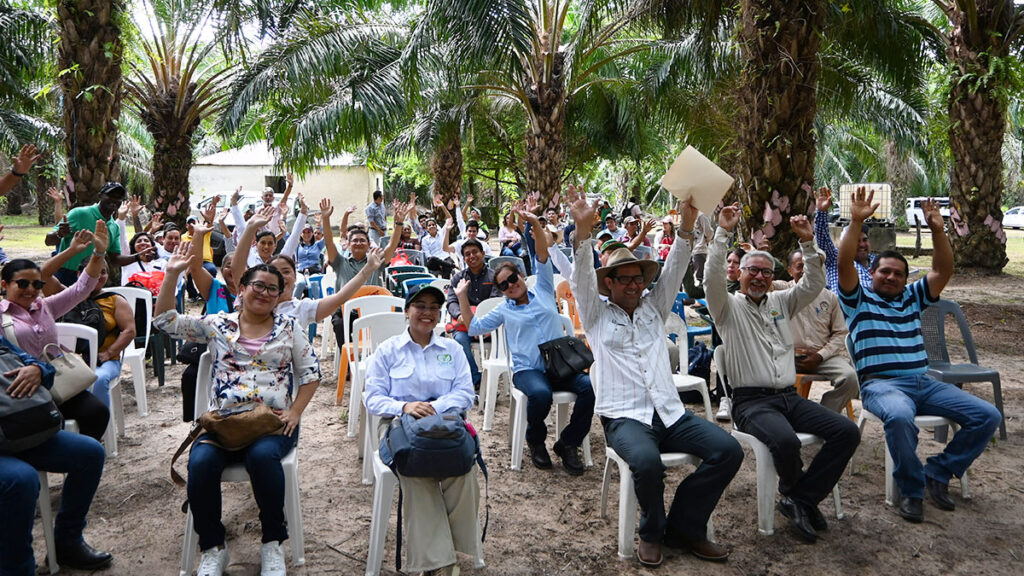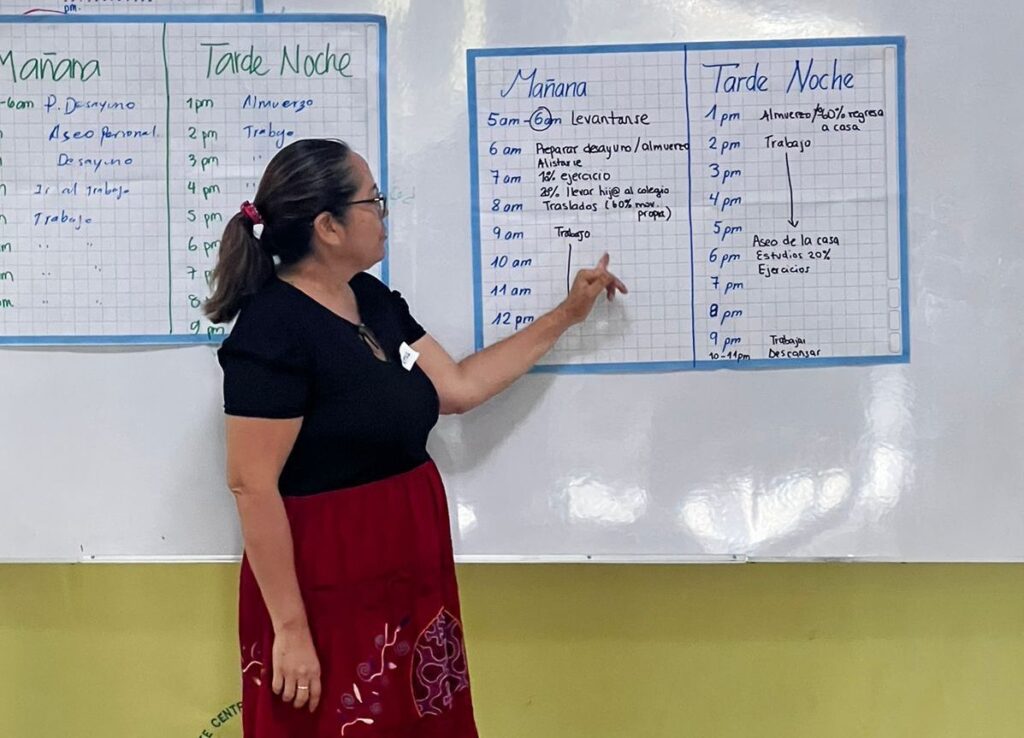The three-day workshop was, in its majority, a series of practical demonstrations in plots located in the Nueva Veracruz and Arroyo Delicias communities. However, on the first day, Solidaridad staff presented the benefits of continuous learning experiences through farmer field schools, and Dr. Cristancho also presented a quick seminar of the concepts he would later demonstrate on the field.
Plant nutrition best practices to increase productivity
In the seminar, Dr. Cristancho presented chemical and organic options for oil palm nutrition, and answered questions such as “What are we seeking to achieve with oil palm nutrition?” and “What are the symptoms of nutritional deficiencies in oil palm?”
What are we looking to achieve with oil palm nutrition?
Learning to manage nutrition in their crops from this workshop will help oil palm smallholders increase their income, given the improved productivity rates possible from putting the skills into practice. Dr. Cristancho gave specifics on how to measure the increased productivity and explained how nutritional best practices goals go beyond financial gains into making sure that the smallholders are conserving natural resources.
The following are the topics Dr. Cristancho addressed that oil palm smallholders should look for while incorporating nutritional best practices:
- Overall crop health, caring for the environment and not depleting soils
- Optimal nutrient levels throughout the plant system, including soils, leaves and their stems (rachis)
- Good plant development, achieving a specific leaf area index in the shortest possible time
- High yields, measured in a greater number of bunches and an increase in the weight of the bunches, as well as an increase in the tons of oil produced per hectare
- Higher profitability, that is, less use of fertilizers in kilograms per ton of fresh fruit bunches (FFB) or lower investment costs in fertilizers per ton of FBB
The expert covered other topics such as comprehensive pest and disease control, weed management and pruning techniques. More than 60 smallholders and more than 20 staff from private sector partners assisted the presentations. He demonstrated several of the concepts in days 2 and 3 of the workshop, with reduced groups on the field. Dr. Cristancho included evaluations made to specific farmers’ plots, pairing commentary on what the farmers were managing well, with recommendations, such as identifying nutritional deficiency symptoms on the crop and advising how to improve these conditions.
During one of the field days, Mr. Abraham Castañeda, president of the Arroyos Delicia Los Choles independent palm smallholder society (similar to a cooperative), urged his colleagues to put into practice what they learned in the workshop. “Let’s move forward. Let’s do better….so that when Mr. Cristancho returns, he will see the difference [in Arroyo Delicia’s production]”.
How farmer field schools can promote sustainable agriculture
Since March 2016, Solidaridad has worked with smallholders from La Victoria, Nueva Veracruz and Arroyo Delicias in Marqués de Comillas to install and maintain a farmer field school in each community. “The communities have worked hard to install their schools. Community members raised the funds to build the infrastructure for the classrooms, and Solidaridad has supported the schools by providing them with teaching materials and a handful of office supplies”, explained Javier Anaya, from Solidaridad’s palm programme in Mexico.
Farmer field schools are a motor for continuous improvement in oil palm production
The nutrition workshop in October gathered smallholders along with staff from private-sector partners, so it was a perfect opportunity for Solidaridad to present on the importance of farmer field schools, and explain their role in promoting continuous improvement and sustainable practices in the oil palm smallholder communities. In Solidaridad’s farmer field schools, smallholders’ existing knowledge is highlighted, respected and enhanced with continuous learning exchanges.
One important aspect of making the field schools function as a motor for improvement is access to a technician. This technician acts as a consultant for smallholders, facilitating continuous learning within and among the schools and helping connect communities with external experts like Dr. Cristancho. In March 2019, Solidaridad installed one of these facilitator technicians to support all three communities. Unfortunately, due to the pandemic and other issues, as of March 2020 we do not have a technician assigned to engage the farmer field schools in the area.
“In the last two years, we have continued to support the field schools by engaging smallholders through technology like WhatsApp and providing limited technical assistance. However, we continue seeking support from partners in the private or civil society sectors to get this important consulting figure placed permanently in the area. A technician would help these smallholders from Marqués de Comillas to continue moving forward with implementing sustainable practices in their oil palm production and could even promote and encourage knowledge exchanges that will help bring solutions that have already worked in one community to the others”, said Javier.
We continue seeking support from partners in the private or civil society sectors to get this important consulting figure placed permanently in the area.
Javier Anaya, Solidaridad Project Officer Palm Oil, Mexico
What are the goals of farmer field schools?
Farmer field schools provide a space for dialogue and analysis. When they gather through the schools, smallholders can reflect upon technical palm production topics as well as use the space to strengthen their community by addressing general interest topics.
In oil palm production, farmer field schools help to achieve multiple goals:
- Promote the co-construction of solutions to needs and problems specific to the local community. For example, through the field schools, smallholders can organize and sell their palm fruit as a group rather than each producer venturing on his or her own, achieving better prices.
- Implement and test sustainable practices. For example, testing nutrition good practices and learning together how the practices work best.
- Collect data that will help improve productivity in the community. For example, recording temperatures and precipitation during the season or recording productive and commercial activities, to take these numbers into account when planning and making decisions or changes.
At Solidaridad, we have evidence that smallholders in the region can depend on oil palm as their livelihood without recurring to damaging practices like deforestation. With increased financial support, our initiatives can turn smallholder farmers into responsible business people that earn a living income, practice deforestation-free agriculture, invest in sustainable practices that protect biodiversity in landscapes and become part of a resilient and low-emissions food system. Would you like to learn more about farmer field schools? If so, please contact Javier Anaya, Project Officer Palm Oil & Coffee for Solidaridad in Mexico.
For more information
Would you like to learn more about farmer field schools? If so, please contact Project Officer Palm Oil & Coffee for Solidaridad in Mexico, Javier Anaya

